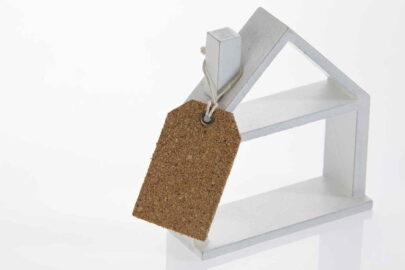Halifax’s latest house price index has found that UK house prices were stable in January.
The typical UK property now costs £281,684 (compared to £281,713 last month).
The annual rate of house price growth slowed to +1.9% (from +2.1% in December), with the rate of annual growth slowing in all nations and regions during January.
Kim Kinnaird, director of Halifax Mortgages, said: “The start of 2023 has brought some stability to UK house prices, with the average house price remaining largely unchanged in January at £281,684, a very small decrease on December. This followed a series of significant monthly falls at the end of last year (-1.3% in December and -2.4% in November).
“The pace of annual growth has continued to slow, to +1.9% (from +2.1% in December), which is the lowest level recorded over the last three years. The average house price is now around £12,500 (-4.2%) below its peak in August last year, though it still remains some £5,000 higher than in January 2022 (£276,483).
“We expected that the squeeze on household incomes from the rising cost of living and higher interest rates would lead to a slower housing market, particularly compared to the rapid growth of recent years. As we move through 2023, that trend is likely to continue as higher borrowing costs lead to reduced demand.
“For those looking to get on or up the housing ladder, confidence may improve beyond the near-term. Lower house prices and the potential for interest rates to peak below the level being anticipated last year should lead to an improvement in home buying affordability over time.”
Karen Noye, mortgage spokesperson at Quilter, added: “House prices in January have remained stable after a few months of falling according to Halifax this morning. This may be because mortgage interest rates have gradually started to climb down from their peak following Liz Truss’ infamous mini budget, which caused potential buyers to leave the market in their droves.
“While we are still far from out of the woods, with the Bank of England still likely to raise rates again to curb inflation, we feel in a more predictable time. Predictability helps to drive demand up in the housing market but that is weighed against severe personal financial strain. Therefore a stagnating or slowly dropping housing market is to be expected for the time being.
“This more forecastable environment is illustrated by the fact that in the run up to the last interest rate decision despite it being heavily rumoured that the base rate was likely to rise, many lenders continued to cut rates on their fixed products and tighten margins on their tracker rates. Commercial competitiveness is now driving a price war that the lenders are happier to be a part of considering they have a better idea of where interest rates will end up.
“Although there have been damming predictions about the UK economy in comparison to its peers by the likes of the IMF, if there is only a very shallow recession, we should start to see house prices rebound as interest rates fall once the spectre of inflation has gone. It will still take some time but its likely house prices will be on an upward trajectory as and when people’s personal finances have recovered from the current shock.
“For those deciding to make a move now or refinance, this environment is having an impact on mortgage product choice. More people are getting their heads turned by attractive trackers with the tightest margin over base rate. However, it’s likely that once things have settled people will once again look largely at the fixed rate market to achieve predictable monthly outgoings and avoid being caught out by another shock like the one we are going through.”
